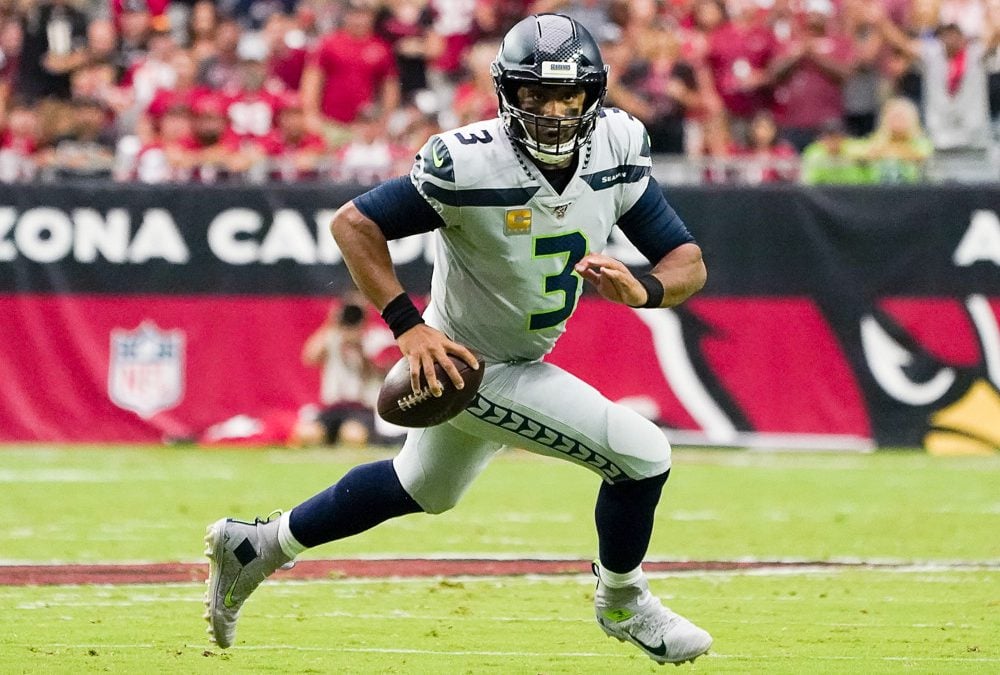FFPC Playoff Challenge Contest Overview
On the surface, the FFPC Playoff Challenge is simple. Pick a team at the start of the playoffs and whoever has the most fantasy points after the Super Bowl wins. But upon closer examination, this is a very unique format which dictates some unique strategies.
* Points scored in the Super Bowl count double.
* There is no draft. Select a team of 12 (QB, RB, RB, WR, WR, TE, FLEX, FLEX, FLEX, FLEX, K, D) while using a maximum of one player from each playoff team.
* FFPC scoring is in effect, meaning full-PPR for RB/WR and 1.5-PPR for TE.
* $200 or $35 buy-ins with $500k and $100k to first place, respectively
* For the Main Event, out of the $1.092M prize pool, $500K goes to first. Second place gets just $50K. It’s even more top-heavy than most DFS contests.
Editor’s Note: The FFPC is hosting two different Playoff Challenge contests. The first is a $200 buy-in with $500K to first. The second is a $35 buy-in with $100K to first. You can read more about them here. You can get $25 off your first $200 contest (new accounts only) by using the sign-up link above. Limited to (1) promo per household.
Editor’s Note 2: This is a free preview of the type of strategy content that Establish The Run offers for the FFPC Playoff Challenge, and more fantasy contests. You can see our full offering for the playoffs here.
STRATEGY
For this contest, we have to adjust our thinking. This is not the same as a DFS GPP (guaranteed prize pool tournament) and it’s not a season-long fantasy contest.
In a DFS GPP, the optimal strategy is to roster correlated players from the same game, with a significant benefit to you if the player is less popular.
In traditional season-long fantasy, we want to own the players that will score the most points over the course of the season. There is no consideration at all to ownership, as each player is only owned by one manager.
But in the FFPC Playoff Challenge, the optimal strategy shifts. We are looking for correlated outcomes based on game results, with a moderate benefit to owning players who are less popular. The lack of salary cap makes this less important than in DFS tournaments, as it is somewhat rare in non-injury situations for a player like Mecole Hardman to outscore Tyreek Hill straight up, especially over the course of multiple games.
What becomes critical is mapping out which teams you think will win games, and making reasonable picks based on these scenarios. As an obvious example, it wouldn’t make sense to play Lamar Jackson and Derrick Henry on the same team. You know one of these teams will only play one game since they are playing each other in the Wild Card Round, and you’re going to need at least two, and likely three (or more) games from your quarterback to win a 6000+ entry tournament. If you assume the Titans exceed expectations and make the Super Bowl, getting only one game from Lamar Jackson isn’t a good strategy when there will certainly be multiple quarterbacks that outscore him if he only plays one game. You could instead use your Ravens selection on a lower scoring position like Tight End, Defense, Kicker or simply avoid the team all together (you will need players for 12 of 14 teams).
The Super Bowl is critical as fantasy points are doubled in that game. It is very likely that the top scoring team will have at least one if not two of the top scoring players from each team in the Super Bowl. There is leverage to be gained by rostering reasonable fantasy players from teams who are somewhat unlikely to make the Super Bowl but can put up points if they get there.
Contrarian is good, but don’t get crazy. Contrarian might be picking Chris Carson at RB and hoping the Seahawks running game gets going, they win at least two games, and he scores a handful of TDs in the playoffs. Crazy would be drafting Rashad Penny and hoping that the same somewhat unlikely run happens, Chris Carson gets hurt, AND Rashad Penny is the highest scoring Seahawk on the roster, given there are a handful of other running backs in the mix should Carson go down who would also see an expanded workload in that scenario. It theoretically could happen, it’s just so unlikely that we don’t think it’s +EV.
Some positional notes:
QB — There are lots of reasonable options in the playoffs as Patrick Mahomes, Aaron Rodgers, Josh Allen, Lamar Jackson, Tom Brady, Russell Wilson, Ryan Tannehill, and arguably others could reasonably be the top scoring QB should their team win two or more games. It’s important to be open to playing different quarterbacks.
K – We don’t think you should let kicker dictate your roster in any meaningful way. It’s unlikely that a kicker will be the highest scoring player on a team winning multiple playoff games, so you’re aiming for a team that plays one or at most two games and kicks a few FG’s.
DEF – Similar to the kicker position, you’re going to want what will likely be higher scoring offensive players over the stretch of a couple of games rather than a team defense. Accordingly, we aren’t putting too much emphasis on defense selection. We should at least note that theoretically having a defense on a Super Bowl team that has an outlier game (say 20+ points) worth double points could be critical to winning and extremely contrarian. That scenario would likely take a few low-scoring offensive games heading into the Super Bowl followed by a blow-up defense game, and we aren’t sure it’s even +EV to shoot for.
Our Premium content for the 2021 playoffs includes: FFPC Rankings, Expected Points Scored by Player, Ownership Percentage Predictions, and much more, including access to our DFS content for the NFL playoffs. For more info, click here.


